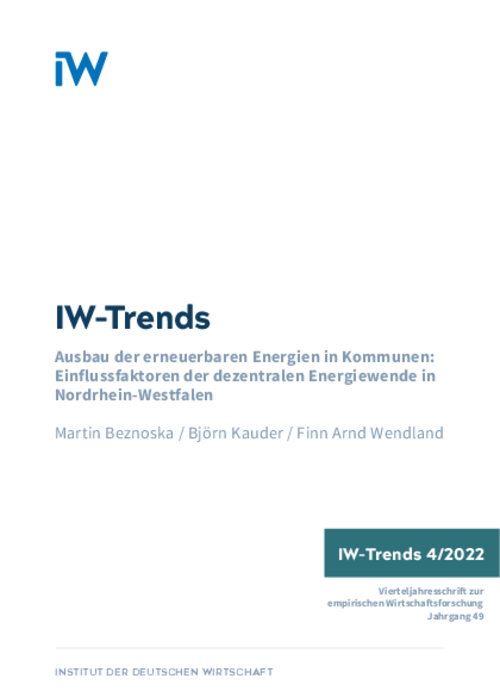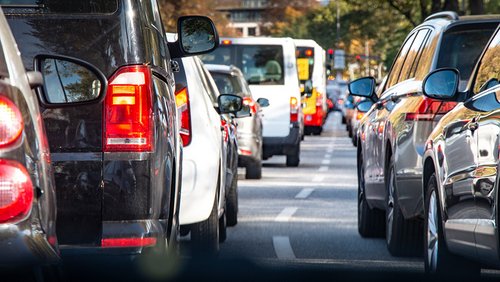North Rhine-Westphalia (NRW), the most populous of Germany’s sixteen states and an industrial heartland, is a particular focus of the energy transition. Despite considerable progress in expanding the use of renewable energy, NRW still lags far behind other German states.

The Growth of Renewables in Municipalities: Factors Influencing the Decentralised Energy Transition in North Rhine-Westphalia

North Rhine-Westphalia (NRW), the most populous of Germany’s sixteen states and an industrial heartland, is a particular focus of the energy transition. Despite considerable progress in expanding the use of renewable energy, NRW still lags far behind other German states.
As the municipal level has a vital role to play in the success of the energy transition, this study examines the extent to which local factors are influencing the decentralised push to extend the use of renewables. Based on data from NRW’s urban and rural municipalities between 2010 and 2020, it examines the politica l affiliationof the local administration’s leader (the mayor), its financial situation (municipal debt) and the activity of the construction industry within its boundaries. The results show that, on average, cities and other municipalities that elected a „left-wing“ mayor in the 2009/2010 local government elections expanded the use of renewable energy less than those with „conservative“ leaders. Financial difficulties in the public budget at the beginning of the period were associated with weak growth in renewables, while municipalities with brisk construction and investment activity tended to achieve more. The results provide empirical findings on the significance of the framework conditions for the energy transition at the local level.


The Growth of Renewables in Municipalities: Factors Influencing the Decentralised Energy Transition in North Rhine-Westphalia

More on the topic

Compendium 5.5: CO2 Regulation of Road Transport in Europe
With the Compendium CO2 Regulation in Europe, the IW has been providing the interested public with a comprehensive collection of data on the development of CO2 emissions from passenger car traffic in the European Union, as well as on the applicable regulatory ...
IW
Financing the Sustainability Agenda
The EU has set legally binding targets for climate-neutrality by 2050. To succeed in the transition to a low-carbon economy, companies need to continuously develop new and improved climate-friendly technologies, and to adopt or move towards low-carbon business ...
IW